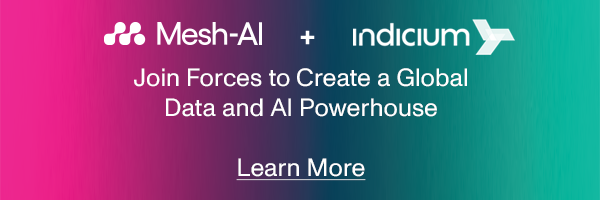


There are many routes for organisations to reach net zero, some yet unexplored, and perhaps this is the reason some still think it’s a fanciful idea. But conversation between the technology leaders in the energy and utilities industry clearly demonstrated to me that significant efforts are being made, founded on a real desire to reach net zero.
On a Wednesday night in an underground private dining suite, our group of 13 held an intimate discussion about a range of topics, including data and AI’s role in reaching net zero, the skills challenge as an obstacle to innovation, and how the reputation of the energy industry sits on a knife edge.
Here are my key takeaways from yet another successful event with industry experts on one of the most pressing issues facing our customers. Sign up here to hear about future events like this one.
One overriding point from the evening – people have heard loud and clear that data & AI can play a pivotal part in the race to net zero.
Many are already looking at ways in which AI can be the solution. Most are taking a use case-based approach but realise that they’ll soon hit a tipping point where a fundamental rethink of how they operate will be required.
There was an agreement in the room that to harness the benefits of AI to reach net zero, establishing robust and accessible data foundations is essential. The correct governance and structure enables organisations to tackle a whole heap of ESG related matters in one go, ensuring they can maintain customer happiness.

There was general acceptance that technology is the hard part. Challenges continue around structuring the organisation in a way that you can reap the benefits of technology, while remaining agile, iterative and confident of minimising risk.
Cloud computing continues to be a massive enabler, with many already benefiting from self service data platforms as a good starting point. These solutions democratise data and allow teams to operate more seamlessly, avoiding data silos and establishing good governance. One insight was to avoid throwing everything in there without good governance as chaos will undoubtedly ensue.
Unsurprisingly, many feel they have sound data governance approaches in place, with Ofgem standards giving energy firms a north star. But existing practices are labour intensive and to move into a world of operating at scale, data governance methods need to be automated.
There is an awareness that in order to do so, the industry should utilise metadata to increase transparency and accessibility on high value datasets, so more teams and areas of the business can make use of this valuable data. Paving the way with more agile approaches to governing data only makes building AI and ML models more seamless and drives business value.

The lack of technical skills is not a problem isolated to energy and utilities firms. Attracting the right talent with the knowledge and expertise to improve data practices and harness AI is a growing concern.
While tackling the supply of talent with the right skills is a separate issue, companies can and should form small teams from across the organisation, pooling together different skill sets. These units can drive innovation and lead on projects to support across the business, almost acting as an internal accelerator to establish capabilities where needed.
The majority of our discussion centred around internal best practices and what companies can do within themselves. But with increasing regulator scrutiny and attention on scope 3 emissions, there is a need to effectively monitor third parties and the wider supply chain.
Sharing data with other parts of the sector is therefore integral, and organisations see massive opportunities in this space. Not only does this speed up bottlenecks but it has the potential to foster innovation and drive the industry forward.
Consumers may not agree but the energy and utilities industry is the fifth emergency service that people rely on. Keeping the lights on and homes heated is no easy task, yet little praise is given and criticism never too far away.
Reputationally and financially, it’s important for energy firms to maintain stability and security of their operations and assets. This is where many see data and AI as a solution, in alerting to multi hazard weather events, scenario planning and preparing energy suppliers and operators, and staying ahead of unknown events that could disrupt operations.
Read more on our work supporting TotalErnegies' energy transition.
If you’re interested in attending our dinners and events in future, please sign up here.
You can also find out more about our Data Mesh services.
